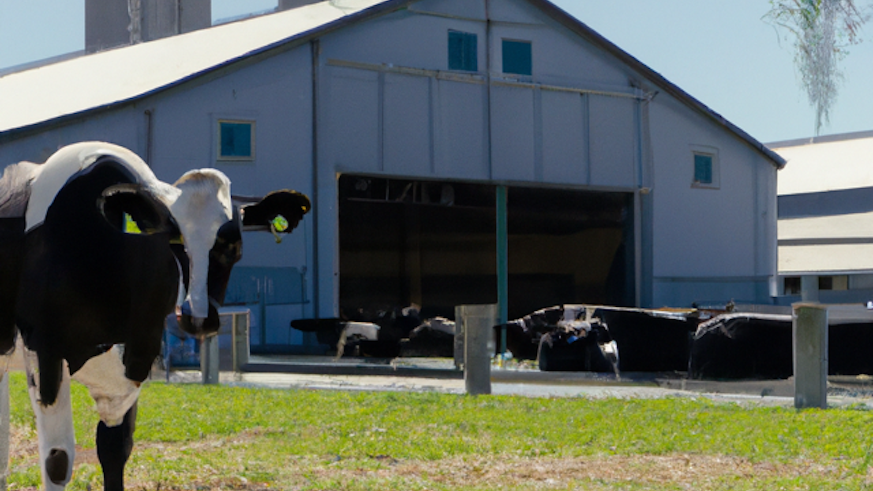Hot and bothered cows get £1.24 million study
10 March 2023

The Welsh School of Architecture is collaborating on a new project to mitigate the problem of dairy cow heat stress - which reduces yield, fertility, immune system functions, and overall cow welfare.
Researchers are seeking to understand the interactions of ambient temperatures, building microclimates, cow physiological processes, and changes in cow behaviour. Ultimately, episodes of heat stress will continue to affect animal welfare and milk yield if they are not addressed through changes in practice. Rising temperatures caused by climate change are going to compound the problem, experts say.
The collaboration between the Universities of Reading, Cardiff, Essex and Writtle University College is a £1.24 million BBSRC-funded research project on mitigation of dairy cow heat stress within building microclimates. The project is multi-disciplinary, encompassing research in Animal and Dairy Sciences, Mathematics, and Built Environment Engineering.
Chris Reynolds, Professor of Animal and Dairy Sciences at the University of Reading, says: “Heat stress due to climate change could have severe negative consequences for the health and productivity of dairy cows. Lactating cows have ahigh rate of metabolism, which makes them less tolerant of high temperatures.
“Research is essential to inform and shape future cow management strategies and building designs. We have to respond to the changing environment and through better understanding of how cows interact with building microclimates design housing and management systems that minimize heat stress and enable more sustainable dairy systems .”
Keeping a close eye on the herd
Research will take place at the University of Reading’s Centre for Dairy Research (CEDAR) and six commercial dairy farms across the UK. Individual cow behaviour will be tracked, using technology that can give a meaningful insight into patterns of movement, activity, and space-use by herds. This will be combined with continuous sensor monitoring of barn microclimates to model and predict the complex interactions between cow behavioural choices and their housed environment. .
Cows are known to adapt their behaviour to help cope with high temperatures and humidity: they may increase their intake of water, seek shade or areas of increased ventilation, or exhibit other individual and social behavioural responses, all of which can be observed.
“As architects and building designers, we have primarily prioritised housing for humans, often neglecting the housing needs of animals” said Professor Zhiwen Luo from the Welsh School of Architecture.
“However, as the impact of climate change threatens all living beings, it's imperative to recognise the vulnerability of animals, especially their limited capacity to adapt to extreme weather conditions. With this in mind, our new project in WSA aims to design improved housing for dairy cattle in the UK, providing them with better protection against extreme heat and elevating their overall welfare.”
Continuous sensor monitoring of barn microclimates (temperature, humidity, air quality) and detailed ventilation surveys will also be obtained and combined with physiological data (such as body temperature, production and health readings). This will enable detailed analysis of how indoor-housed dairy cows respond to, and cope with, heat stress over different timescales.
The data collected will inform development of housing designed to reduce heat stress and improve welfare.
First-of-its-kind research
The approach the team is taking, using bespoke sensors from Omnisense and Smartbell, and modelling how building design influences housing microclimates and subsequently cow behaviour, has never been done before, so new ground is being broken.
The research consortium also has industry support from AHDB (the UK Agriculture and Horticulture Development Board), The Dairy Group, Etex, Innovation for Agriculture, and Map of Ag, as well as Defra (the UK government’s Department for the Environment, Food and Rural Affairs). Working with these partners, the aim is to provide practical, evidence-based solutions to the UK dairy industry, for minimizing and managing heat stress.